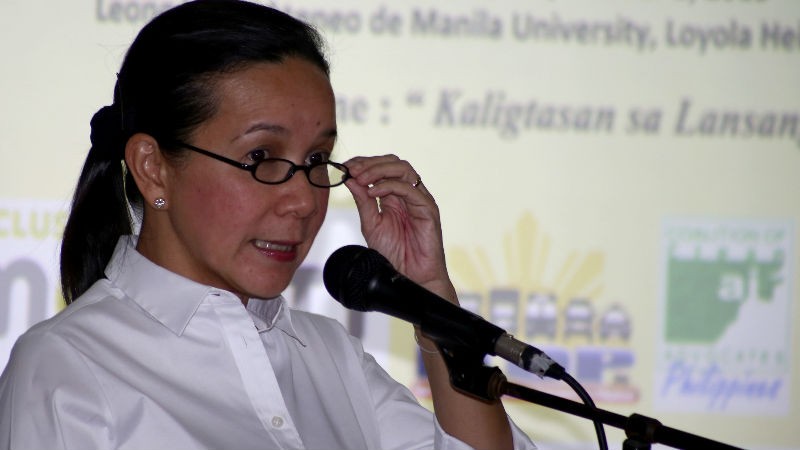Of orphans and prejudice
Some may say that the tears were all part of an “act” on the part of Sen. Grace Poe when she broke down while addressing a gathering on the rights of the child, particularly the rights of orphaned, abandoned and adopted children.
And one can’t blame the critics, since we are already in the midst of “election (or rather, campaign) season.” Everything said and done by a putative candidate such as the senator would be invariably interpreted as playing to the crowd, all for purposes of election.
Article continues after this advertisementBut in this case, I am inclined to give the senadora the benefit of the doubt. She was speaking, after all, about something close to her heart, a subject matter that has been wielded by her critics and possible opponents to jeopardize her chances in this year’s elections, if indeed she decides to run for president.
After all, Senator Poe was talking about herself—a foundling who was eventually adopted by the best-known movie star couple of the time, Fernando Poe Jr. and his wife Susan Roces. Talk about a Cinderella story! That she would be catapulted to a senator of the republic and now a possible presidential candidate, with what many consider the best chance of victory, makes her life journey all that more shimmering and splendid.
It is to her credit that she has turned what could have been a stigma against her to a social and political advocacy for the rights of children who have the greatest claim to society’s benevolence: orphans and foundlings. But this confrontation with and embrace of her beginnings could not have come without pain or struggle, and the tears should have been seen in that context.
Article continues after this advertisement* * *
In a Facebook post, Inquirer columnist Cathy Babao, a friend since childhood of Senator Poe, reassured the senator that despite her own misgivings about the senator’s recent statements, “No one knows your journey, and no one has the right to judge. We all don’t.”
“People can say what they want about your tears,” Cathy continues, “but I could see and feel that they were real, that you wept for every child like you, and with every parent that openly welcomed children like yourself into their hearts.”
I’d also like to remind people that the “foundling issue” didn’t originate with the senator. It was raised as a possible hindrance to her candidacy when critics started to question the citizenship of her natural parents (at least one has to be Filipino) as well as her act of once renouncing her Filipino citizenship when she moved to the United States and then re-acquiring it when she decided to take up permanent residence here with her family.
Her mother Susan Roces was right to air her grievance about those who sneer at the senator’s unknown provenance. To call her Poe’s “nanay-nanayan,” (pretend mother) is offensive and unfair. To all intents and purposes, as Roces herself says, she considered Grace her child and herself as Grace’s mother.
I, too, have had many reasons to be disappointed by the senator’s recent remarks and performance. But I attribute this to her eagerness to please as many constituencies as possible, which is the first step down the slippery slope to trapo-land. But to use the ampon issue against her is to run the risk of creating even more sympathy for her. It is pointless to focus on an issue about which the senator had no doing. Better to scrutinize her for her legislative performance and the possible platform on which her possible campaign could stand.
* * *
Now onto the issue against a metaphorically “orphaned” people—Muslim Filipinos, whose aspiration for greater respect and autonomy in a land of Christians is facing rough sailing from our legislators.
According to a Moro lawmaker, Cotabato City Rep. Bai Sandra Sema, the delay in the passage of the proposed Bangsamoro Basic Law (BBL) in Congress is not due to infirmities in the draft legislation. Rather, the slow passage of the bill is caused by “biases against the Muslim community.”
Remarked the Cotabato City representative: “It’s not the law. It’s not the bill. It’s not the language. It’s the antipathy to the Muslim people.” She added that “all of the issues are based on misconceptions that we are trying to correct and the BBL suffers from these misconceptions,” during her conversation with civil society members at the sidelines of the House deliberations on the BBL.
* * *
Tracing the biases perpetuated against Moro peoples dating back to the Spanish and American colonial periods, Sema said that “suffering has no price. The BBL tries to correct these historical injustices done against the Moro community in pursuit of the spirit of the Constitution to uphold social justice in the country.”
It is not more money or funding that the Bangsamoro adherents want, the legislator added. “What we want is for the wars to stop.” The BBL, she stressed, “is for changing the status quo of the Bangsamoro people because men, women and children have suffered enough from this armed conflict.”
“We can survive poverty and we will survive the challenges,” Sema noted, but not “the war that has disturbed us and prevented us from developing.”
In other words, it is peace that the Bangsamoro people want, but it is prejudice that stands in the way of achieving that peace.

















